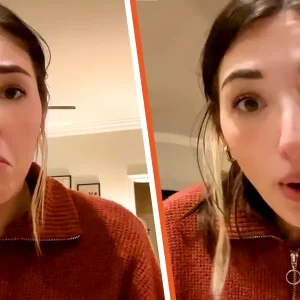I went on a Tinder date with Alan, but when he arrived and saw me in my wheelchair, his expression changed from excitement to shock.
“Sally? You didn’t mention… the wheelchair,” he stammered, disappointment etched on his face. I explained that I wanted him to see me, not my disability. His anger flared as he accused me of deceit.
“Nice try to get my pity,” he mocked, his words cutting deep. I felt crushed but stood my ground, asserting that being in a wheelchair didn’t make me less worthy.
Alan’s cruelty escalated, and my heart sank. “I wanted someone normal, not… defective!” he yelled. Just as I felt defeated, a waiter announced our table had won a surprise dinner. I seized the moment, insisting we celebrate together.
As dinner progressed, Alan’s initial hostility softened slightly. We even participated in a couple’s game, but when I made a mistake, he lashed out again. I felt humiliated but regained my composure, answering trivia questions that impressed him.
Just when I thought we were connecting, I overheard Alan laughing with friends, belittling our date. His dismissal shattered my hopes, and I confronted him, but he cruelly insisted he wanted to be with “normal” people.
In a moment of strength, I took the stage for karaoke, pouring my heart into a song. Alan returned, remorseful, and apologized for his behavior. We shared a dance, our journey from misunderstanding to connection symbolized in that moment. Leaving hand in hand, I realized true disability lies in a lack of empathy.





